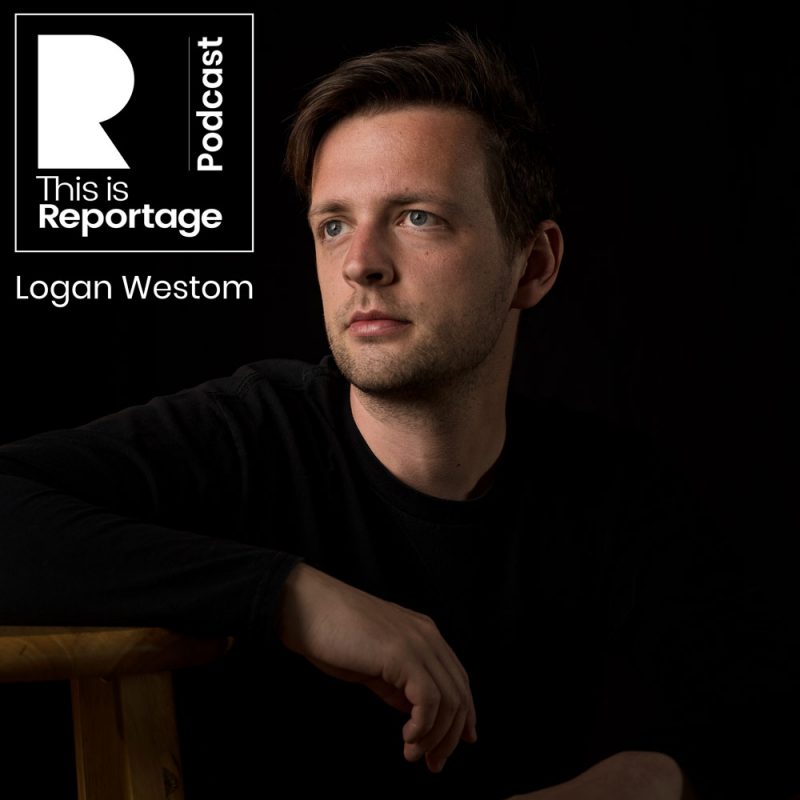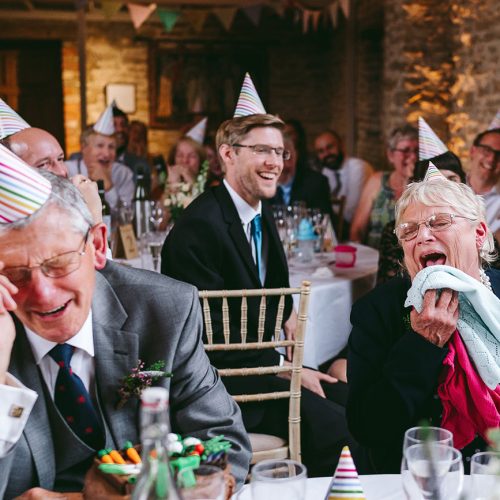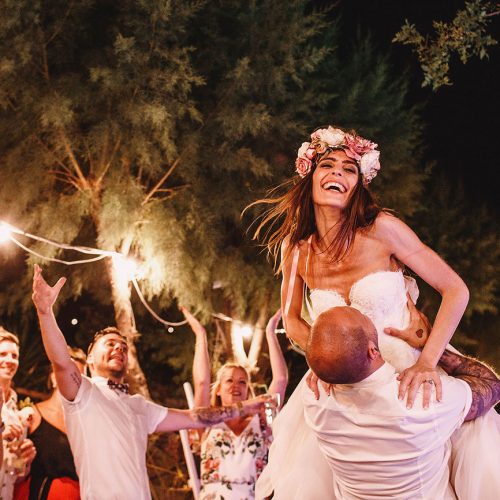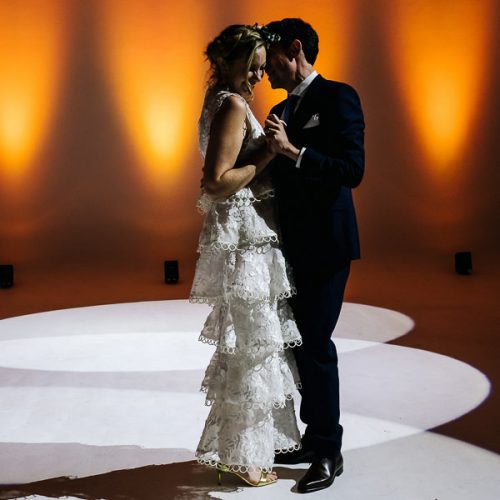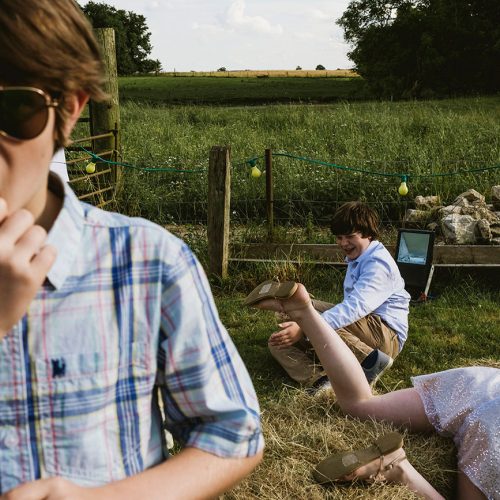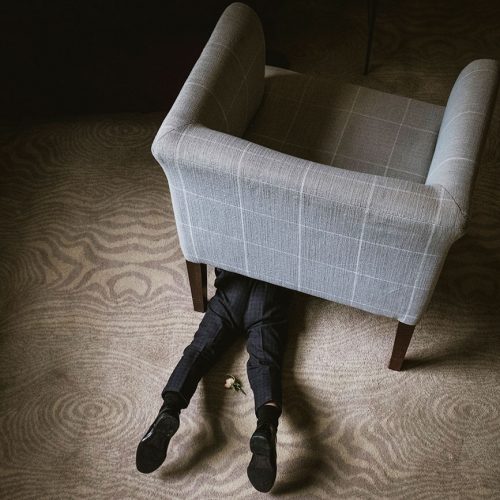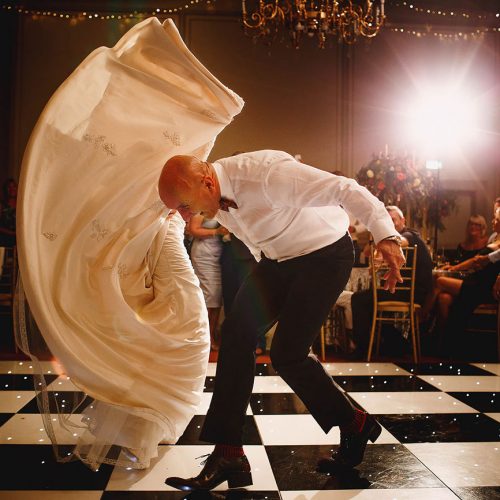Podcast Episode 40: This is Logan Westom
So great to be talking to the fab Logan Westom for episode 40 of the This is Reportage Podcast! Logan is one of the best wedding photographers in the USA, and has won an incredible 6 Story Awards from us, and 7 Reportage Awards. He’s also just won a Family Story Award on our brand new sister-site for documentary family photography, This is Reportage: Family.
Logan shares so much with us in the episode, including:
- music and concert photography (his first passion in photography),
- how Seattle was one of the first epidemic centres in America and its affect,
- the excitement of shooting again,
- his experience as a photojournalist,
- photographing a chicken-wing eating contest,
- how he got into weddings,
- Comedic and Dark Netflix recommendations,
- the story behind one of his specific Reportage Awards,
- his personal project documenting artists of all kinds,
- tips on Story Awards,
- shooting solo or with seconds,
- what success means to him,
- networking,
- the reason he learned to ski,
- thinking about the future,
- working with his wife,
- tips on improving your documentary skills,
- and much more.
Listen on all our usual ways: Spotify, Google Podcasts, iTunes/Apple Podcasts, YouTube, and below in this post.
Alan:
Hey Logan, how you doing?
Logan:
Hey, I’m doing good, how are you?
Alan:
Yeah, good, thank you. All good, all good down here in England. Yeah how’s things with you because you’re in America, aren’t you?
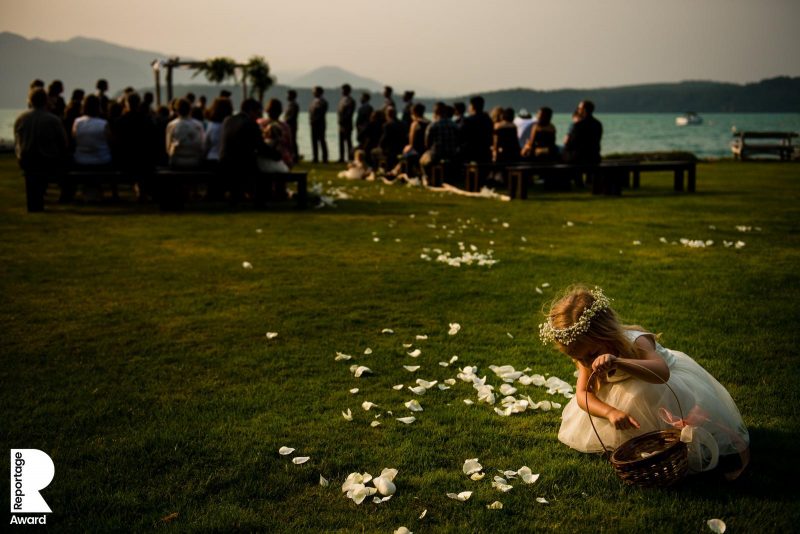
Logan:
Yeah, I’m in America, I live in Washington State I’m kind of by–really close to Seattle but outside Seattle just a little bit, but kind of in that Puget Sound Seattle area.
Alan:
Oh okay, cool. I’d love to visit someday; my American geography knowledge is so bad. You know, I’ve only been to Vegas, I’ve been like six times, I’ve never been anywhere else in America.
Logan:
That’s hilarious because I’ve never been to Vegas.
Alan:
Have you not, really?
Logan:
No, I haven’t no, my wife’s gone a bunch of times because she goes down there for like trade shows and stuff.
Alan:
Oh, yeah.
Logan:
But I’ve never been down there.
Alan:
Never been tempted?
Logan:
No never have, we’ve always talked about it actually, we’ve always talked about for like one of our birthdays of flying there because you can usually get really cheap flights flying there with no luggage, no nothing, just ourselves and then getting a return flight the next morning so just go in there midday, staying up all night staying up all through the night and then flying back early in the morning, no hotel, no nothing so–
Alan:
You should definitely do that.
Logan:
–we would do that someday.
Alan:
You should. Yeah, that’d be great. That’s the perfect place to do that. You’ve never been tempted for WPPI even? No?
Logan:
No, like a mini WPPI, used to travel around and stuff and it came through Portland once where I used to live and I went to that and it kind of was like everything I needed, it was like all in one day. A little bit of trade show some awesome speakers, so I kind of would do those local ones where I could just like kind of drive from my house and but maybe in the future.
Alan:
Yeah, you should do it. I just love Vegas man, I do, I love it. It’s like the opposite of where I live in like the southwest of England, it really is.
Logan:
Does England have anything like a Vegas or anything like that?
Alan:
No, nothing that compares no, it really doesn’t.
Logan:
I mean, it’s really, its own thing, unique to the whole world kind of.
Alan:
Yeah, totally, you’ve got to experience it, I think that plan of going down not having a hotel and just staying up, yeah, that is a good plan.
Logan:
I think we’ll do that someday maybe part of 30th birthday.
Alan:
Yeah.
Logan:
A good way to end my 20s.
Alan:
Wow, you’re not even 30 yet, man, you’re young.
Logan:
No, almost, like a year and a half, maybe, till I turn 30, I think.
Alan:
Yeah, gosh, wow, that’s awesome, wow I didn’t know you were that young, I mean, the quality of your work. I just thought I presumed I guess, I think everyone I presume is about my age, I think for some reason, but I’m old. I’ve got to realize I am old.
Logan:
Yeah. Well, funny, I’m the other way around, every time I look at people sometimes, I think, oh, they must be in like their, like late 20s, like, early 30s but sometimes they’re not and I’m just like, blown away. I just feel like, I mean, I think some people are so much younger than they really are.
Alan:
That’s funny, isn’t it? We have –yeah, that’s funny.
Logan:
Yeah, that’s perception.
Alan:
Yeah. So how far away from Seattle are you then?
Logan:
So, it kind of depends. We’re like 10 miles if you were to draw like a straight line to Seattle, which isn’t that far, but that is through just water. So, it takes like an hour ferry ride to get there.
Alan:
All right.
Logan:
If you were to drive, you kind of have to drive all the way around the water and it takes about an hour. So it seems far but it’s like close but when I travelled there I usually take a ferry boat, and then I usually can work on there and then get into Seattle really easy.
Alan:
That’s cool, you know, it’s a place I kind of always wanted to go because I used to be a big Nirvana fan growing up.
Logan:
Oh, yes.
Alan:
Yeah and you’re into your music, aren’t you?
Logan:
Oh yeah, I love music and music’s kind of been an important thing in my whole life since like my teenage years on.
Alan:
That’s cool. So, photographing concerts has been one of your passions.?
Logan:
Yeah, that was actually kind of how I mean, that’s not how I first got into photography. That was kind of it was kind of my first passion in photography, you know, in photography was always kind of something that I was really interested in but when it became something that like, wow, this is like a serious passion, I like really felt something inside like Music photography was the first thing. And it kind of started with me –I was looking at some one of my favourite bands and I saw some photography from like their tour photographer and I was just like, connected to it in such a way that I’d never connected with photography before. And from there, I was like, I got to photograph concerts, it’s like, I love listening to music, I love photography, you got to combine these two things.
Alan:
That’s cool.
Logan:
So I started photographing some smaller, smaller groups, some smaller bands, it’s kind of led it on to photographing larger bands these days.
Alan:
That’s cool, man. I think I’ve not done much myself at all, gig photography, but it’s a difficult thing, isn’t it? I mean, you must learn a lot from doing that with kind of movement and really low light.
Logan:
Yeah, it’s really its own thing and the hardest thing too is when you go to photograph a concert, usually you’re there unless you’re actually photographing directly for the band. If you’re photographing for like a press outlet or something usually you only get the first three songs so you have to get everything you need in the first three songs which in the first three songs just blow by sometimes with all the adrenaline and some shorter songs it can be over in like nine minutes you got to your whole job in nine minutes.
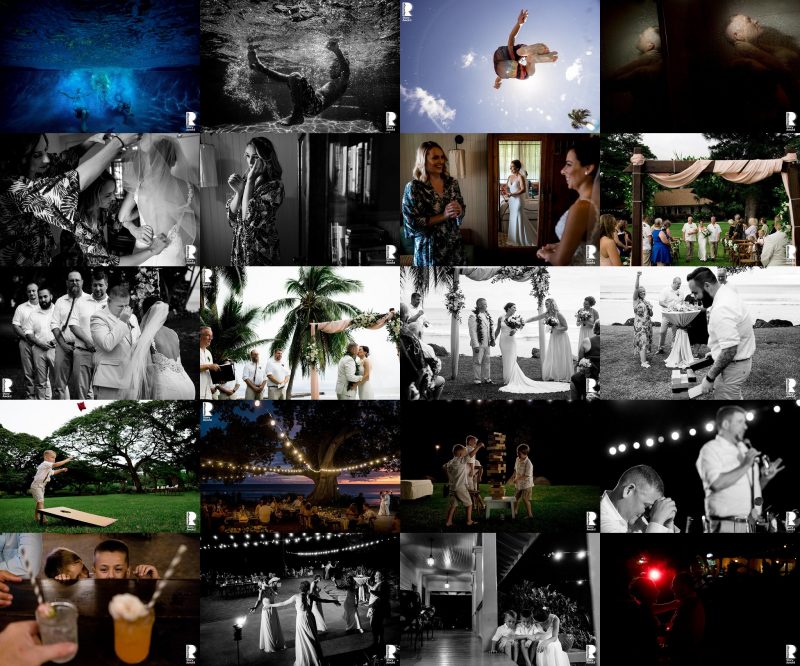
Alan:
That’s even more stressful than a wedding.
Logan:
Yeah it really is especially because if like the lighting engineer programs like really bad lighting for like the first couple songs like in the last song is the one with like really great light then you really even like only down to like three minutes sometimes. So, it’s always kind of tricky, but it’s such an adrenaline rush and so rewarding after the fact that it’s something I’ll probably do the rest of my life.
Alan:
Oh, that’s cool, man, that’s cool, so you’re still doing it, I guess, you’re not been doing much in Corona time, not been very many gigs I imagine at the moment.
Logan:
No, yeah, it kind of sucks, that’s like the one of the one of the first things that when Coronavirus was kind of hitting Seattle, it was the first thing to kind of go. I was actually supposed to photograph a concert that night that they kind of imposed closing or cancelling all events in Seattle.
Alan:
Oh right.
Logan:
Yeah, it was back in March so I haven’t done anything since March but yeah hoping things will start up again. There’s some places around here that have been doing some like drive-in in concerts where people will like drive-in kind of like a movie theatre with like, their cars like separated so maybe some of that stuff kind of start to bring it back while we’re kind of waiting for the pandemic to end.
Alan:
Yeah. Wow, that’s cool. Well you’ll need a long lens, probably, if you’re going to be having to do with these cars away.
Logan:
Yeah, it’s probably yeah, because usually when you’re photographing, you’re like, in the photo pit, so you’re like, three to five feet away, but the photo pit is probably like farther away, and you’d probably want to shoot from like 20 feet, so it’ll change things up a little bit.
Alan:
Yeah, it will, won’t it? it will because I find the music photography really interesting actually. You know when you’re taking photographs, do you ever just find yourself if you really like the band that you’re photographing, do you ever just find yourself like forgetting to photograph? Kinda just singing along and stuff.
Logan:
Yeah. I mean, it’s really hard because like, at the same time, I know I have a short period of time, so I got to get the photos but like, sometimes I wish I like will sit there and just kind of like, especially in between songs where they’re like maybe talking or they’re more to like tuning their instruments, I’ll kind of just sit there and like, take it all in. And just like be in awe that like I’m just close to like one of my favourite bands getting to photograph them. But actually, when it’s like those bands that are like my ultimate favourite band, I don’t want to miss anything so I actually turn on the shutter drive on my camera to like 12 frames per second or whatever the highest it is and like just like motor drive the whole like nine minutes just so I don’t miss anything that’s like happening so I like get it, but that’s usually only with like favourite bands who are like super active and running around the stage.
Alan:
That’s a good idea. What’s been your favourite band to photograph?
Logan:
Yeah. It’s really hard. I’ve been doing it for like, eight years and people always ask that I never had like a good answer. There’s always so many but I think the one that always comes back to me is Switchfoot and Switchfoot is like one of those older bands that people know from, like, eight years ago, but they’re still touring and they’re still active and they’re so good live, they like, they move around the stage a lot, they do interesting things with their instruments, their live shows, always super impressive and lively. But they’re always like my go to like, I know they’re going to put on a good show. They’re going to have… their photos that come out of are going to be really good.
Alan:
Sounds cool. I’ve not heard of…
Logan:
You haven’t heard of Switchfoot?
Alan:
No, I haven’t. No, sorry.
Logan:
You probably have, you just don’t know, there’s like a couple songs, they were in like a really popular movie in like, the 90s or maybe late 2000s, it was like really popular. I can’t remember what it’s called but I bet if I remembered and told you, you’d remember but…
Alan:
I’m old man, I’m think I’m too old, I’m too old.
Logan:
Maybe I don’t know, because they’re pretty old too, they’ve been around for a long time but yeah, they’re really good.
Alan:
Oh ok, what type of music then?
Logan:
They started out with like Christian rock, and then they kind of—they didn’t separate from the Christian, but I think they just kind of expanded their options, what they could sing about and stuff but they’re kind of like rock; indie rock kind of band. Yeah, they’re really good they’re from like California, San Diego and they’re really into surfing so it’s kind of like surf rock almost kind of thing where they’re like really influenced by that kind of stuff, really positive music.
Alan:
That sounds good. Have to check them out, I will check them out.
Logan:
Yeah.
Alan:
And while we mentioned there about how Corona has been affecting obviously the music photography, how’s it been? How’s it been for you? How’s it been affecting you know, your weddings? What’s the scene there at the moment? What’s happening?
Logan:
Yeah. Seattle was one of the first epidemic centres in America. It was kind of, I think a lot of people were flying over from China to Seattle. It’s kind of a big hub for people flying over and I think it kind of started here and it kind of expanded so we got hit pretty hard early on. So, a lot of things got cancelled kind of in March, a lot of things got cancelled. I had three weddings back to back weekends over three weeks. In one of them I was attending as a guest and I wasn’t able to attend just because it was at the height of the worry of everything, so we had to cancel and then two weekends after weddings I had to photograph and they all got postponed and then everything is kind of postponed since then but things are kind of starting to look a little bit better now, our numbers have dropped considerably. I think our state and our governor has done a really good job of kind of correcting us and you know, lowering the numbers and flattening that curve.
Alan:
Okay.
Logan:
Slightly larger weddings are starting to happen, a lot of restrictions on them, but people are starting to move forward with some plans, anything that’s like a really big wedding seems to be pushed off for till next year, most have been postponed next year.
Alan:
Right, okay. Well, it’s been mad, isn’t it? It’s mad. I should just say actually first because you never know when people are going to be listening that we’re recording this on the 16th of July because things change so quickly don’t they as well.
Logan:
Yeah that’s true.
Alan:
So, when’s the next wedding that your kind of supposed to be photographing, if it doesn’t postpone?
Logan:
Yeah, me and my wife are supposed to photograph a wedding next Saturday actually, in Rhode Island–
Alan:
Oh wow, okay.
Logan:
–Which is all the way across the country, so we have to fly to it and it’s like a five-hour flight.
Alan:
Oh wow.
Logan:
Actually, right before this, I got a phone call from their Rhode Island Health State Department because I’ve actually been trying to figure out if it’s actually legal for us to fly over there–
Alan:
Sure, yeah.
Logan:
–because every state kind of has different rules and for people traveling in there trying to make sure that the spread from one state to another doesn’t happen.
Alan:
Right.
Logan:
But I just got the call that we should be safe to travel there and photograph the wedding, so that was that was a huge relief for us.
Alan:
Oh, that’s great. Yeah, how exciting as well, shooting a wedding again.
Logan:
I know, I know, we’re really excited. Yeah, there’s going to be a lot of different things about it, but it’ll still be good to photograph it.
Alan:
Yeah, just that feeling just to be shooting again will be awesome. Like, is it going to be a lot smaller guests, is it? Or can they still have a decent number? Or do you know?
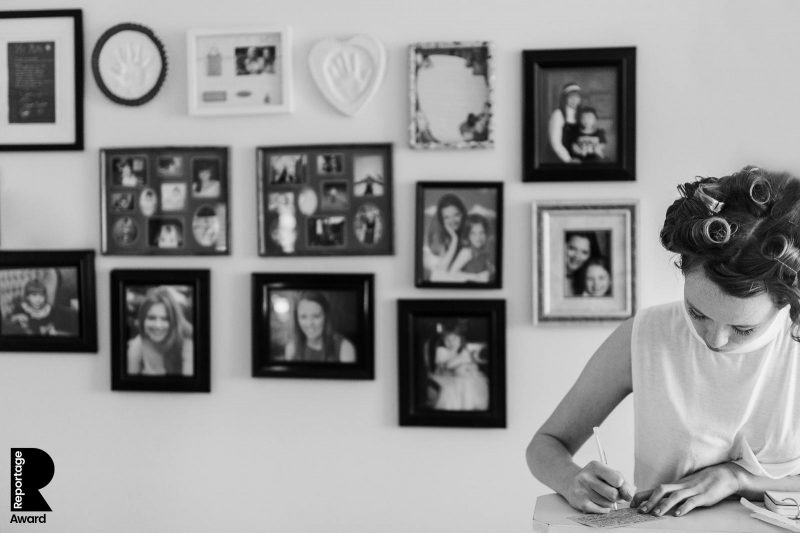
Alan:
Yeah, I think well, the state we’re going to shoot in is a state that’s also doing really well, their numbers are super low, their governor has done an amazing job at keeping everybody there safe. And so, I think they’re allowed to have, I think about 50-75 guests–
Alan:
That’s pretty good.
Logan:
–in an outdoor venue. So pretty good size, I think they did have to cut their guest list in like half or something, which is tough, but…
Alan:
Are they still allowed to, going to have a like an evening party inside and things or?
Logan:
Yeah, I’m not sure, I think they have a good idea, they’ve done everything they need to, they’ve like contacted their governor’s office to like get write offs on all their precautions they’re doing and everything, so I believe they’re doing everything they need to do to hold it, but I’m not sure exactly what the reception celebration will be like. I’m sure people that are like within households will be maybe dancing together and stuff like that. But I don’t think it will be like the big dance floors, but I mean, you never know. I don’t I’m not sure what exactly they’ve planned.
Alan:
Well, you’re going to see, which is really exciting and yeah, even though it’s obviously maybe a bit sad for the bride and groom having to cut their guests but it’s also, a unique event, isn’t it, a unique event in time that you’re going to be able to photograph and something that hopefully you’re not really going to be able to see again, so yeah it’s exciting.
Logan:
Yeah, it’ll be really interesting. It’ll be the first one I’ve done since it all started so I’m excited to kind of see what it is, and I mean. The way I photograph weddings, it’s all storytelling, so, whatever the story is, it’s kind of important to document that, along with their wedding and stuff.
Alan:
Yeah, definitely. Oh man, and I love your work. And then that brings me on to something that I love on your website, you have like three different portfolios and for your moments portfolio, you introduce it with the words, ‘This is the most important portfolio gallery,’ which I couldn’t agree more with, it’s awesome. Have you always like right from the beginning, like focused on the documentary side of coverage? Or is your style kind of changed over the years? How has it been for you?
Logan:
Yeah, I’d say for like, 80% of my career, it’s been this documentary focus but at the very beginning, when I kind of was like dabbling in wedding photography, I kind of didn’t really have a good idea of what wedding photography was so I kind of just jumped into it with like, no experience, no understanding of what it is or what it could be, mentality, and it wasn’t anything that I’m doing now but early on, in order to get experience, I was second shooting and I met this photographer, and he shot in a very documentary way and he kind of turned me on to this new way of thinking of photographing weddings, being very photojournalistic and he told me about all these cool photographers that are shooting weddings in a very photojournalistic way and I was really inspired by all that and they kind of from there, I kind of took that approach and have kind of just gone with it and further developed it over the years.
Alan:
That’s cool man, ‘over the years’ though but you’re still like not even 30.
Logan:
Yeah, I know. Well, I got I’ve been doing this since and I mean, when I first started it was it was me just kind of shooting and just having fun taking pictures. I kind of started in college, so I’ve been doing it since then.
Alan:
Right, okay, you’ve been rocking it, and you worked as a photojournalist for a few years, can you tell us about that including the chicken wing eating contest that you covered?
Logan:
Yeah, so, my photojournalism experience it was mainly through the WSU, the school that I went to, Washington State University, their photojournalism school had a newspaper and when I was living in the dorms, one of my friends was like, “Hey, the newspaper’s hiring photographers, I know you take pictures, you should go apply.” And I was like, “Yeah, I don’t really like taking pictures of people, I’ll be really awkward and not really good at that kind of thing.” But he’s like, “Oh, you should go do it, you could probably get paid for it or something, your pictures are really good.” So I was like, “Okay” and so I went there, and I applied and they were kind of looking through my work and I didn’t really have any sort of journalism experience and just kind of pictures I took of my family and they’re like, they kind of thought they’re like, we can kind of see some potential here. So, they brought me on, and I kind of did that all through college and it was a really great learning opportunity. There were so many different things that I got to photograph that I’d never photographed before and so many like learning experiences, that I learned throughout there that I that I still use today.
Alan:
Oh, that’s cool. Yeah, what was the chicken wing?
Logan:
Yeah, the chicken wing eating contest, I think that was I’m trying to remember exactly what that event was. I think it was like, it might have been like a Super Bowl party or like something with like a big football game or some big sporting event, but they wanted people to go out and they told me to go out to this bar because they were having this to photograph people enjoying whatever was going on and there was a chicken wing eating contest and that became like, I think the story of what was happening. I can’t remember exactly what the story was but yeah, it was two guys at the table eating chicken wings; really hot chicken wings. That was kind of one of the standout totally. One of those things I’ve only done once and never done again.
Alan:
No, that’s cool. A great basis though then to be going into weddings and taking that photojournalistic style. How did you decide that you wanted to kind of photograph weddings? How did you get your very first one?
Logan:
Yeah. So, I really loved all the photojournalism stuff I was doing and working for the newspaper but the degree I was getting, I was actually going to school for interior design, that was kind of what I was kind of focused on at the time. My degree moved me, we were at WSU Pullman for a period of time, and then they moved all of us to a different campus. It was in like a larger city so we can get more experience working with professionals in the city and stuff like that and when I moved to the other campus, there was no newspaper at that campus so I wasn’t able to shoot anything, and I really missed having different things to photograph every day.
Alan:
Okay.
Logan:
But like I was kind of thinking, I was like, Well, what can I do that’s like similar, but I can still kind of had that experience and that, yeah, that experience. And I was thinking I was like, well, weddings are kind of, there’s a lot of moments that happens at weddings and like there’s kind of a similar styling, kind of the similar experience. So, I kind of thought weddings would be a great spot to, to kind of go and I reached out to
a guy and his name’s Matt Shumate and he’s an incredible photographer. And he said, I could come second shoot for him and kind of tag along and shoot some of the weddings. And after that, it kind of just went from there and I kind of fell in love with the whole thing and it kind of snowballed into what it is today.
Alan:
Oh man, awesome. So did you enjoy right from the very first one when you were second shooting? Yeah.
Logan:
Yeah, yeah, it was. I mean, I kind of came in with this mentality that it was going to be a lot of fun and he was the one that kind of showed me that weddings can be photographed with a photojournalistic and documentary perspective, because I was kind of reaching out to him in like a different manner of photographing weddings. And he’s like, No, man, you’re going to shoot weddings like this, because like you had that experience, like, use it and the weddings, the photos you’ll get from these weddings will be really great if you shoot in that style. So kind of just used his experience and his knowledge and kind of took that and ran with it.
Alan:
Well man, awesome, and you’re totally rocking it, awesome. So what year was your first wedding, that was your wedding, you know, like your first proper paid wedding. When was that?
Logan:
Yeah actually, yeah, I think okay. I think it was like 2000… okay, I need to think about this for a second. You might need to edit this part.
Alan:
It’s okay.
Logan:
I think it was like 2013 or like 2012.
Alan:
Right, okay.
Logan:
Yeah, that was when I shot my first one, yeah and it was like I posted on like the Knot–
Alan:
Oh cool.
Logan:
–website and it was kind of like, it was very like basic, low budget but the weddings that I got out of that year were great weddings to kind of field my portfolio for a number of years and I think I still have like two or three photos from that first year that sometimes make it back into my portfolio which I think is really kind of cool and really kind of special that my portfolio is really like an example of the photos that I’ve taken throughout my whole career–
Alan:
That’s very cool.
Logan:
–and the very first year even.
Alan:
I wonder if that’s quite unique, I’m just thinking to myself whether I’ve got any photos in my main portfolio from my first year of weddings, I really don’t know.
Logan:
There’s not many, but there is…sorry.
Alan:
No, I’m just saying I’ve got a bit better, you know, from beginning I wasn’t very good right at the beginning. So my portfolios definitely got a bit better but it’s great that you’ve got some from your first year in yours.
Logan:
Yeah, not many. I mean, they’re, they’re there with a lot of photos that definitely aren’t my portfolio, but there’s like, there’s like one or two and they kind of filter in and out as I kind of adjust it and refresh my portfolio.
Alan:
Wow, that’s cool. Now let’s change tack slightly, let’s change tack–
Logan:
Yeah.
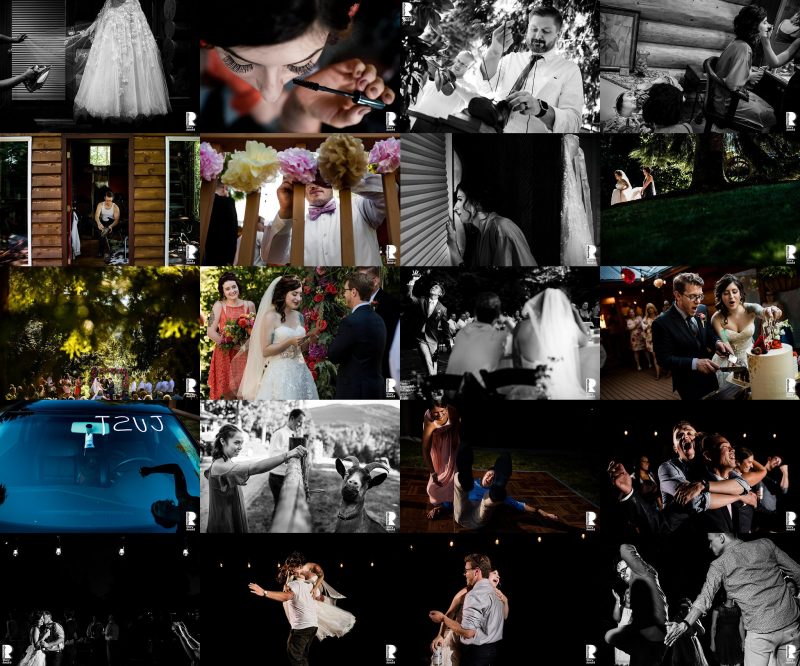
Alan:
–because I think I think I saw on your site how you’re a Netflix comedy fan, so it doesn’t have to be comedy. But yeah, have you got any kind of favourite Netflix series of all time or something that you’re watching at the moment that you can recommend?
Logan:
Yeah, I mean, I watch The Office and Parks and Rec like daily.
Alan:
Oh okay.
Logan:
I don’t have any co-workers here because I work at home, so usually I put The Office on and they’re kind of, I like to consider them my co-workers.
Alan:
Oh, that’s cool.
Logan:
Yeah but…
Alan:
I’ve never seen the American Office, so I’ve seen the UK Office, but I need to watch the American because there’s a lot more series than the American. Y
Logan:
Yeah, it goes on for quite a while, there’s like six or seven or eight seasons.
Alan:
Yeah, okay.
Logan:
Well, yeah, well the British office but I’ve only seen the first season and it was it was pretty good. I know the humour is slightly different but if you pay attention, it’s actually hilarious stuff.
Alan:
Cool, okay have to watch it. Anything else? Any different series at the moment?
Logan:
Yeah, right now, I’ve really gotten into Kumail Nanjiani comedian. He’s a comedian from Pakistan but he lives in America now and I’ve really gotten into his stuff. We just watched one of his comedy movies, his early one, The Big Sick. I can’t remember the last time I laughed out loud that many times watching a comedy. And it’s just really good, so now I’m just trying to find all his stuff so I’ve kind of been going back through and watching all his appearances on the show Portlandia.
Alan:
Oh okay.
Logan:
Which was popular a number of years ago, which is actually kind of funny because I grew up in the Portland area so it’s kind of fun to watch a show based on…
Alan:
Cool, yeah. Do you recognize locations and stuff?
Logan:
Some of them, yeah, yeah, I didn’t live like in a lot of those areas, but we’d like travel there every once in a while. It’s just kind of fun to like, see locations and hear streets and like different things around Portland, hat was always kind of fun. And then other shows…let me think I’ve actually I’ve actually not watched a lot of comedies. I feel like there hasn’t been a ton of comedy coming out. But we’ve watched a lot of like dark stuff recently.
Alan:
Oh, cool.
Logan:
I just watched the Ozarks, which was really, really good.
Alan:
Yeah, we’re still partway through the third season of that actually, it’s great, isn’t it?
Logan:
Oh, it’s so good, it’s like so addicting and like thrilling. Yeah, I can’t get enough of that show.
Alan:
Talking of dark programs, have you seen the program called Dark?
Logan:
I have heard of it but have not watched it yet.
Alan:
Oh man, honestly, it’s so good, especially if you like anything to do with time travel, it’s honestly the best thing ever done about time travel. It’s German, watch it in subtitles, but you know, in German language rather than dubbed, it is so good, it’s so good.
Logan:
It’s in German?
Alan:
Yeah, it’s in German, yeah.
Logan:
Yeah, I’ve seen a lot that, so I actually just wrote that down, so I’ll have to check that one out.
Alan:
Yeah, it’s brilliant. Honestly, it’s so good. And for a light relief, we’re watching Schitt’s Creek at the moment, have you ever seen that?
Logan:
Oh yeah, yeah, actually we’re watching it again for the second time all the way through.
Alan:
Oh, cool.
Logan:
Yeah, we’re watching on Netflix, so we actually haven’t seen the last episode which has already been out and released on like live TV.
Alan:
Oh right. We’re only the second season so we’re way behind anyway.
Alan:
Yeah, it’s good.
Logan:
Yeah, it’s actually so good, yeah, it’s really good.
Alan:
Yeah.
Logan:
The shows interesting, it took me a while to get into it like I watched the first couple episodes with my wife and I wasn’t like really feeling it and it was kind of funny, but I didn’t really like the rich snobbyness of it, which is like the humour of it. But then she started watching it more and I was kind of just in the room and I’d listened to it and I kind of like got addicted so I like watched it like from like season three on to actually going back to watching the whole thing from beginning to end again.
Alan:
It’s cool. I just love the scenes when all four of the family members are together, the dynamics between the family, the children.
Logan:
Yeah.
Alan:
The main mom, you know from Home Alone, she is just amazing, she is so good, so good.
Logan:
Yeah, oh yeah, it’s okay. She’s so… they’re all so great, I love it when the two siblings are interacting, Alexis and David, it’s just so fun to watch.
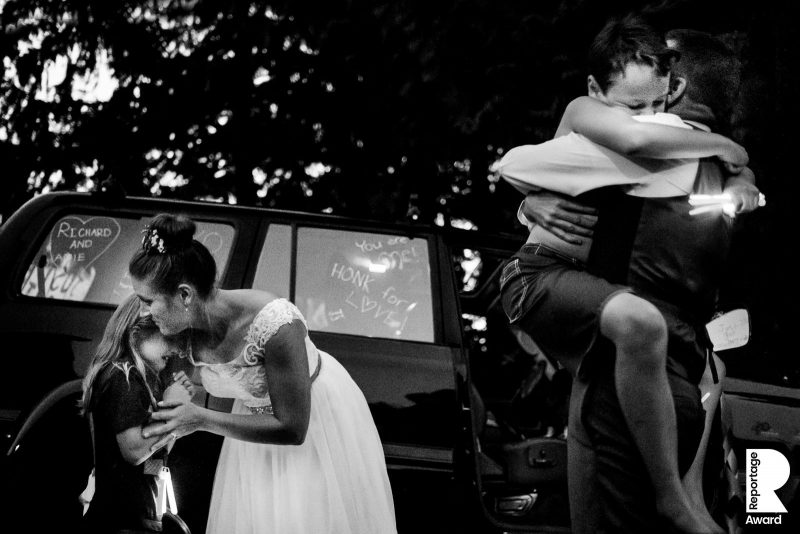
Alan:
It is isn’t it? It’s cool you like that as well. That’s awesome. Cool, okay, let’s go, I’ve enjoyed that little segue. Let’s get back to your photography because one of your specific Reportage awards that I love (above). It appears what you know, just from looking at it. I might be totally wrong, but it looks like it’s kind of later in the evening with what appears to be I think the bride and groom may be saying goodbye to their kids for the night maybe, is that what’s happening?
Logan:
Oh yeah, I love that photo.
Alan:
Yeah, I love that as well. It’s so real and something that you don’t, you know, you don’t see that much and maybe isn’t captured often at all. Yeah, could you tell us a bit more about that shot?
Logan:
Yeah, that is one of my favourite photos and it’s one of those photos that happens so fast, and it was unexpected, and it was really hard to shoot, actually. But yeah, you’re right, it was at the very end of the night, the bride and groom were getting ready to kind of get in their car and go to their hotel for the evening. And both of them had been married previously and both had kids.
Alan:
Okay.
Logan:
So, when they were seen going into their car and saying goodbye, I think the younger daughter ran up to her mom and then the son ran up to his dad and they kind of were saying goodbye and it was like when you look at that and when I can like feel like the strength in that hug that the son is giving his dad and then the little girl is crying and to get both of those, from both sides of the family is such a great moment to get. I look at that often and just love the feeling and the emotion in that photo.
Alan:
Yeah, it’s awesome.
Logan:
And it was really hard to photograph because it was after the sun went down, there was no light nearby, it was just like pitch black, I was like trying to catch something to actually autofocus and get on it. In fact, I think the photo might be slightly out of focus. I can’t tell because like the ISO was like 8000 or something–
Alan:
Right.
Logan:
–And then I had to also increase the exposure after the fact a lot so there’s a lot of grain in it but that emotion in it is so great.
Alan:
It is man, it’s great, it’s such a cool shot as you say that emotion. And an element of the day, you know, most photographers just don’t capture as well, I think, you know, most photographers would maybe be back in the party or something or would have gone home by then as well, so I think it’s awesome that you’ve got that and it’s just real life you know, it’s super, I love it.
Logan:
Yeah it really is, doing that is kind of something that I picked up from Tyler Wirken. I remember listening to one of his– he was this creative live class he was talking about, and he was talking about how he always follows the bride and groom to like the cars when they’re like saying goodbye to the grandparents or anything, or leaving early and I kind of picked up on that and I kind of like when the bride and groom kind of walk out of the reception hall and they’re saying goodbye to somebody, I try and follow that and continue to photograph that as it happens because sometimes those are those can be a great moments when people are saying goodbye sometimes those are the best ones, that I’m always kind of looking to capture. Maybe not for like a portfolio but definitely for like memorable for the couple later on.
Alan:
Yeah, definitely, definitely. That’s really good advice I think as well, to do that and as you say with that image that I was speaking about, that Reportage Award, it doesn’t matter if it’s high ISO or grain, we never have clients, you know just talking personally, you never have a client come back to you and say well that image was a bit grainy, it’s always something that kind of photographers obsess about, but you know it what’s important is that you’ve got the moment it doesn’t matter there’s a bit of grain. Some photographers put grain into their images in post.
Logan:
Yeah, exactly.
Alan:
I love it and if anyone’s listening now whilst walking or driving or anything do head to the site, thisisreportage.com and I’ll include that image that Logan just spoke about. Yes, great, awesome. And you have a personal project, I think as well, where you document artists of all kinds working on their craft, is that right?
Logan:
Yeah, that’s true. It kind of came out of just kind of an interest in doing the same thing I do with wedding clients but doing it for other types of people. And I live in an area with a lot of people tHAT do a lot of creative things. And it was kind of like it’d be really cool to just like hanging out with them for a day and photograph them kind of doing what they do.
Alan:
What kinds of different creative things are you photographing?
Logan:
The first one was a baker who just kind of moved into town and he does a really good like European pastries and stuff. So he does like Danishes and croissants and stuff. So I kind of, I hung out with him for a day of baking and stuff, and it was so cool because I’d never seen how any of those were actually made. So it was kind of cool.
Alan:
Yeah, yeah.
Logan:
Just to see how that was made, and then to photograph it and, you know, experiments with things, you know, refine how I work and try and get something different and just kind of, you know, take something, you know, grow as an artist.
Alan:
That’s a really good idea. I think it’s, you know, it’s something I’ve never, never done. I’ve never really had a kind of personal project like that. Have you got a goal of, you know, is it an ongoing thing or, you know, are you thinking about how you’re going to present it and stuff? Or are you just kind of collating the images or what are you going to do with it?
Logan:
Yeah, it’s kind of, it’s kind of an ongoing thing right now. We’re all just kind of like, photograph them, put it on like a blog. I’m trying to create like a landing page on my website that can be kind of separate from all my wedding stuff that can kind of be like a nice home for it. But right now, I’m just kind of trying to photograph people and just kind of get as many as I can. And then it’d be cool one day to do like a gallery showing of all these different things together and to, you know, maybe get a cohesive, like artists concept statement or anything. But for right now it’s just kind of, have fun and photograph different things.
Alan:
That’s cool, man. I think that’s a really good idea. I really need to do that. I do as well.
Logan:
Yeah.
Alan:
While, we’re talking about, something a side thing as well. I read that you like playing FIFA, is that right?
Logan:
I do. Yeah, yeah.
Alan:
Yeah. So, are you a gaming fan in general or is it just football? Soccer?
Logan:
I like video games, but FIFA and soccer football is kind of like the thing that I could play for hours and hours and hours and never get bored. I just love it.
Alan:
Yeah.
Alan:
I used to play pro-evolution soccer a lot actually.
Logan:
Oh, yeah.
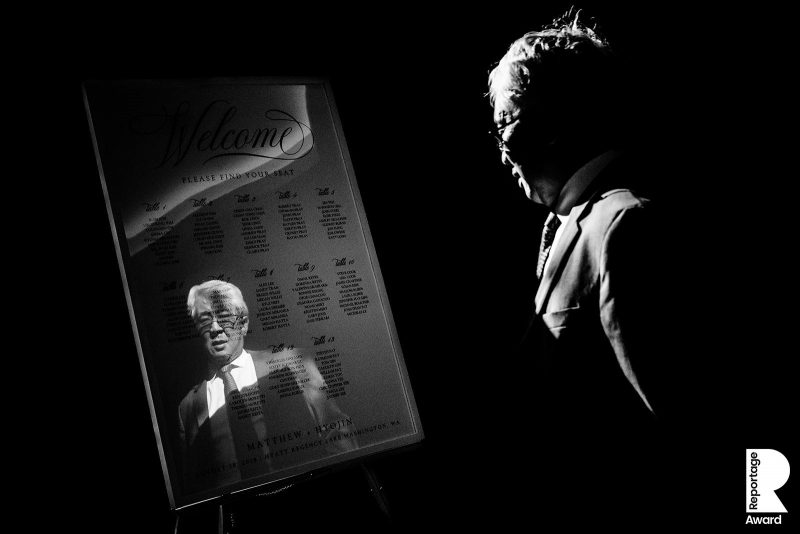
Alan:
That when I was playing that like 10 years ago that the gameplay used to be so much better than FIFA, but FIFA did catch up. Didn’t it? I think probably is but–
Logan:
Yeah, there used to be a whole bunch, there used to be like winning 11.
Alan:
Oh yes, yeah.
Logan:
And then a pro-revolution. I really, I can’t remember which one it was, but there was like pro-revolution or, winning 11. They had a really cool feature where you could turn on invisible walls on the game. So if you kicked the ball and it was like going out of bounds, it would just bounce off and they’d stay in. And it was such a fun feature to kind of play with that. I wish they’d bring, bring to FIFA because that was so, so cool.
Alan:
That’s funny. We should, yeah, let’s start a petition to get that into FIFA. I think the realism aspect of that, they wouldn’t like that…
Logan:
Yeah. What’s kind of like an indoor soccer kind of vibe. I mean, we have indoor soccer here and it’s kind of similar vibe to that, but yeah, it’d be kind of fun. It just kind of changed the elements if you were like playing with friends and stuff, because you could like bounce off of it and stuff and get around people differently is kind of.
Alan:
Yeah, it’s true. Cool. Yeah, that would be good. Have you ever played, they have like a five-a-side version of FIFA don’t they all like FIFA Street or something? Is that like two, one, two, or something? Is it, I don’t know?
Logan:
The new one came out with it, I think you can play like three on three maybe. The aspects are totally different. Like it’s more about like doing like tricks and stuff, like street tricks with the ball and stuff.
Alan:
Oh, okay.
Logan:
The thing with FIFA, I’m like the worst at I’m more like pass the ball around to get around your opponents. I’m not so good with like the footwork stuff, but, yeah, that’s a feature I think, they added into the new, to the newest one.
Alan:
Okay, cool. Did you play much? Did you play soccer at school?
Logan:
Yeah, I kind of no, not a school. Well, I played like on the little rec team like they had like little teams you could form with anybody and join and play. But I didn’t, I never played a for the actual school.
Alan:
Right. Cool, okay. I just, is it, what was the scene like how much like exposure does soccer get, they were in like college in school? We know, when we, you grow up? is it totally small fry compared to American football?
Logan:
Yeah, I think it’s definitely not as popular here. When I was growing up, I mean, in the circles that I kind of grew up in, there were soccer was everybody that played soccer, really loved soccer. But once you kind of gets to like the high school and then college, they had soccer teams, but football was always kind of the one that dominated everything. In high school, the football games would have tons of people, everybody would show up and then the soccer games would kind of just be like the parents and like other people, it was never really like a big thing. Unless you were like super into soccer, which was just a few of people. But I mean, I graduated from high school 10 years ago so that, it could change because soccer is really taken off in America now, with the MLS really kind of taking off.
Alan:
Oh, cool. Yeah, is David Beckham have a part of a team? Does he have an LA?
Logan:
Yeah, yeah.
Alan:
What is Beckham’s team called? I don’t know what they called.
Logan:
Yeah, he played at LA Galaxy but I think his new team it’s like Inter Miami. That’s what it’s called.
Alan:
Oh, okay. Right. That makes sense.
Logan:
Yeah, I don’t know much about American soccer. I’ve always kind of been into European soccer. Chelsea was always the team that I kind of followed and, continue to follow.
Alan:
Alright.
Logan:
Yes, yeah.
Alan:
Oh, cool.
Alan:
I’m not much of, didn’t they win last night? Didn’t they? I think although, I’m not much of a fan, but yeah.
Logan:
Yeah, yeah. We, yeah, we like barely one. It wasn’t the most convincing game but we pulled it off in the end.
Alan:
Yeah, that’s okay. That’s good. Let’s go off, we’ve probably bored if anyone’s not into football, sorry. We will change subject.
Logan:
Yeah.
Alan:
But that was fun. So, as well as you’ve won seven Reportage Awards and you’ve put, you’ve also won Five Story Awards, man, which is amazing, you know, it’s so difficult, it’s so difficult to win a Reportage Award but, and then, but to win a Story Award, you know, even more difficult.
Logan:
Yeah.
Alan:
Do you have any tips in particular for the, for the stories? You know, do you have an approach as to how you maybe choose which images you submit in a story? Because you know, it’s between 15 and 20, yeah. What are your thoughts on the stories? Any, advice for anyone who’s looking to? You know, maybe, win one?
Logan:
Yeah. If I see give any advice right off the bat, I’d recommend people submitting, not at the last second, because that’s usually, that’s what I do, but I’m trying to, I’m trying to be better at it and like, submit maybe like a day or so before. So, I have more time to think. But it’s, you know, it’s really hard. I kind like to submit the ones that I feel most connected to. And I think, looking at the photos that I gravitate towards more the most, and you’re not just doing and making sure that the gallery is like well-rounded, that there’s all sorts of different photos. And sometimes it’s interesting cause you know, we think, documentary work, it’s all about having people in it and stuff, but sometimes there’s detail and there’s stories, even within the details, that I’ve done, where it’s like, maybe like there’s just a hand in it or something that really tells a story. But it’s not even like a person just to kind of round out the whole, the whole gallery a little bit. You know, it’s not just like plain details of like, like table settings or something, unless there’s like a really like obvious story there that really rounds out the whole gallery.
Alan:
Yeah, yeah.
Logan:
So, it’s just kind of like, you know, making it well rounded and trying to, offer different things, different perspectives, to things.
Alan:
Yeah. That’s great.
Logan:
I wouldn’t say I’m the best of the best person to give advice on this, but that’s kind of, kind of what I’ve done.
Alan:
No, that’s good advice.
Logan:
Yeah.
Alan:
And I think anything that you say on it, it’s obviously like, it means a lot because winning Five-story is so amazing, man. It really is.
Logan:
Yeah.
Alan:
It’s testament to you or just to your overall kind of creativity and consistency, which is–
Logan:
Yeah.
Alan:
Yeah, that’s the goal. Is that for all of us, I guess.
Logan:
Yeah. Yeah. It’s something I’m still working on. Like every time I get one, I’m still blown away and shocked and I’m surprised that I’ve gotten one. So, it’s still always a fun thing to get.
Alan:
It’s cool. Proper, proper deserved. We’re on the subject of your shooting. Do you shoot solo or do you shoot with seconds? How do you mix it up? How do you normally work?
Logan:
Yeah, I kind of mix it up a little bit. All my packages, usually it’s just me. And then I usually just strongly recommend a second shooter, but it’s not something that I require, just cause some weddings where it’s like 50 people then probably just having one person is good enough and a second photographer could be too much. But I’d say about 50-50 I shoot by myself and then 50% with, with a second.
Alan:
Do you have a preference personally? Do you prefer to shoot with someone or for on your own?
Logan:
Yeah, it kind of differs every time. It kind of depends, but I think I love shooting with another person cause it’s just like adds another person that I can like hang out with and talk to and like, and be like. Hey, what do you think we should do for the ceremony on this? Because this is what’s happening or, how about for the first dance you do that and I do this and then we can kind of work together as a team. So I think I kind of liked that aspect, more of having someone there to kind of bounce ideas off of and work as a team.
Alan:
That makes sense. You know, I need to do it. I’ve never had a second ever. I need to do it and I need to try it. At least I need to do it.
Logan:
That’s crazy.
Alan:
Yeah. I don’t know. It’s just the way I’ve always done it, I guess, but it makes total sense to have one and those definitely see the benefit. I should do it sometime. I should.
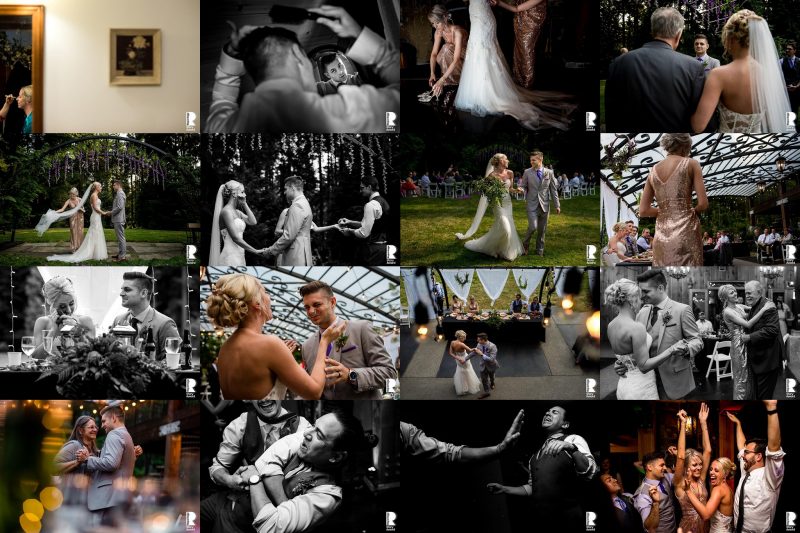
Logan:
Yeah. I was similar to you, I shot all by myself like the first two years. Nobody really ever added one or wanted one and then it was something I kind of at further pushed the more I’ve been doing it.
Alan:
Right. Okay. No, that’s cool. Makes sense. Let’s go to a light throwaway question then Logan. What does it mean to be successful to you?
Logan:
That’s a great question and something I think of kind of all the time.
Alan:
That’s cool.
Logan:
But I think to be successful. I think for me it’s to be happy with where I’m at in my business. To be happy with the work that I’m creating, happy with the clients that I’m photographing. I think that’s kind of, for me, that’s being successful. If I can be, make be happy with what the work that I’m creating.
Alan:
Yeah, that’s that sounds like success to me. I mean.
Logan:
Yeah.
Alan:
Happiness in general and yeah. To be happy with what you’re creating, what you’re shooting, the clients who are getting that is success, isn’t it?
Logan:
Yeah, yeah.
Alan:
Yeah.
Logan:
Yeah. I mean, they’re other ways financially is also another way to do it, but I’d rather be happy with the work that I’m creating and the work that I’m doing and the people, I’m working with than any amount of money.
Alan:
That’s such a great mindset. I totally agree with that. I totally agree with that. Cool, I love the answer. That’s great. Let’s go to another one. I totally original question. It’s not really if you’ve ever heard desert island discs, which is a big kind of thing in England anyway, but yeah. Imagine you’re castaway on a desert island. What one album would you take with you? If you could only take one album, what would it be?
Logan:
That’s a tough one. Let’s see, I think there’s a couple and they’re all from like my high school days when I really started getting into music. I think it would be, there’s a band called Motion City Soundtrack and their album ‘commit this to memory’. It’s one of those albums where every single song on the album is just like, perfect. Like there’s no songs that I would skip and it’s just like one of those great albums. They’re like a electronic pop.
Alan:
Okay. I’ve heard of the band, but I’ve never, I don’t think I’ve heard the music. But I’ve definitely heard of them.
Logan:
Yeah. They’re really good. Their lead singer is like really, really good at like creating like catchy lyrics and their music is just so it’s just so energizing if they’re really good.
Alan:
Cool. Well, I will let you have that on your desert Island. So that’s good in terms of marketing for you, you know, and getting yourself out there, what’s been the most effective kind of tool for you and how do you, how do you get kind of a lot of your weddings?
Logan:
Yeah, I think a lot of my work, comes from referrals from past clients.
Alan:
That’s cool.
Logan:
You know, I spend a lot of time on marketing, like social media and my blog and my website, and I’ve done some advertising in the past, but time and time again, referrals from my past clients have always been the ones that have, brought in some of the best weddings that I’ve done. And not just referrals from clients, but just referrals from other people I know, other photographers.
Alan:
Okay.
Logan:
Those are always, it’s always the best, been the best marketing tool for me.
Alan:
Yeah. And I get that, word of mouth. I mean the referrals from other photographers is great as well. Isn’t it? I mean.
Logan:
Yeah.
Alan:
It’s so cool. Do you, you know, when you started out, did you, kind of network and things, and I know I’m saying this not, not so that you would get that reciprocation, but did you just reach out and kind of meet up with other photographers at all, is it a friendly scene where you are there or is it more kind of online that, you know, other photographers or?
Logan:
Yeah. I mean, for me I’m more of like an introverted person. So for networking of like reaching out to people and like going and get coffee, it’s something that like, it’s not natural for me or like feel comfortable for me. So, I do a lot of my networking, through like Facebook groups and things like that. And my like favorite way to network with people is to second shoot for other people.
Alan:
Oh, that’s cool.
Logan:
I love going there and photographing with other people. And it’s a great way for me to just be more relaxed and get to know somebody while we’re also shooting and kind of working together. So that’s been my favorite way of actually marketing, or networking with people in my community.
Alan:
Oh, that’s cool.
Logan:
It’s something, second shooting is fun too. Cause you kind of have like a different perspective on the day. You kind of have a different role. It’s kind of fun to change it up kind of like a palate cleanser in a way.
Alan:
Yeah.
Logan:
So, it’s something I love to do, so.
Alan:
Oh, that’s cool. Do you still, try to do that? Like even, in the main season when you’ve got your own weddings?
Logan:
Yeah. if I don’t have anything for a weekend and someone who needs somebody, I’m, I’m always up for like doing that. Any time I don’t think I’ll ever grow out of that, it’s just something fun I love to do.
Alan:
Oh, that’s cool, man. Yeah. Great. Awesome. Has there been a specific kind of turning point in your career, you know, something perhaps a certain wedding or a certain award or anything that’s had a kind of like a major impact on your, you know, on your career, your photography, your trajectory, maybe?
Logan:
Yeah. There’ve been a number of things, there’ve been a number of things, like the first time I ever switched from shooting JPEG to shooting RAW was like a huge like eye-opening experience for me when I learned all the different things you can do with a raw file. And then going from like photoshop to lightroom was like a huge jump for me. But I think like the biggest one in my career was when I met, my kind of early mentor, Matt Shumate. And he kind of took me under his wing and kind of told me, taught me all about what shooting weddings and the documentary-style can be that really kind of changed everything in my mindset. It really shifted everything 180, from then on. And there’ve been a number of other things, but that’s kind of like, I’d say the biggest thing. Like if I never met him and learned about that, then I might not actually be where I’m at today.
Alan:
Oh, that’s cool.
Logan:
Yeah.
Alan:
That’s really nice.
Logan:
It’s kind of lots of them. Yeah.
Alan:
I hope he’s listening. I hope he’s listening.
Logan:
I know.
Alan:
We see some strange things in our job as wedding photographers. I’m sure you’ve seen some things what’s the most bizarre or funniest thing that you’ve seen in wedding.
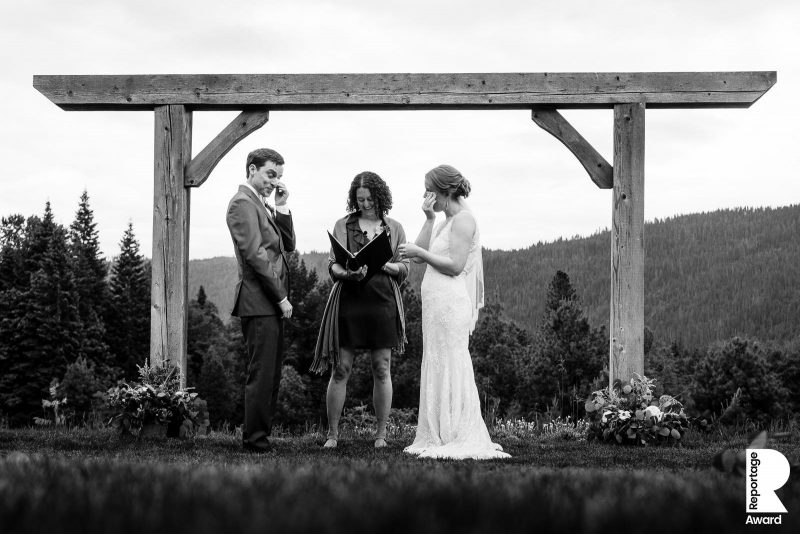
Logan:
This is a tough one. This is kind of like the, what’s your favorite concert that you’ve ever done.
Alan:
Oh, yeah.
Logan:
It’s where somebody’s asking you, like all of a sudden, your mind runs blank.
Alan:
I know, sorry.
Logan:
Yeah. There’s one that I did. There’s one though that always stands out that I’ll never forget and it’s kind of crazy and it’s it. Yeah. I won’t try and go too much into it, but it was, it was a very early wedding. I photographed, it was actually second shooting for somebody else. I can’t remember who they are now. But we were second, we were shooting a wedding and the groom. He kind of, he drank a little too much earlier in the day, and actually ended up getting sent home.
Alan:
Oh, wow.
Logan:
Before the wedding, like finished. And I was, it was kind of like a weird first experience. I was kind of like wow the most crazy thing. But there’ve been some other crazy things, but.
Alan:
That’s pretty crazy the groom getting send it home. Yeah, groom getting send it home. It’s quite crazy.
Logan:
I know.
Alan:
Do you know?
Logan:
And then she told me another issue. You reminded me of another one. I actually shot a wedding for a couple. When was it? It was a number of years ago. I think it was like four or five years ago, but they were getting married at the top of a mountain. And the only way to get to the place where they were getting married was to ski. And I had actually never skied before in my life. And they were like, well, if you learn to ski, you’re totally more than welcome to do this. I was like, okay, I’ll do this. So I took one ski lesson and then like a couple of weeks later went to their wedding and, skied my way to the, to their wedding ceremony site. And then back down the hill without hurting myself.
Alan:
Oh, man. That is good going, we just one lesson beforehand.
Logan:
Yeah. Yeah. It was, it was a green though. It was a green, it wasn’t like a red or a it wasn’t a blue or I can’t remember the other.
Alan:
I have no idea. I’ve never skied in my life actually. So, I have no idea about that, but…
Logan:
Yeah.
Alan:
I mean, that’s dedication though, that’s dedication.
Logan:
Yeah. And it was definitely worth it. And now, now I ski today, so I got a fun new hobby out of it as well.
Alan:
Oh, that’s cool.
Logan:
Yeah.
Alan:
Do you have to go far for? Whereas again, sorry my geography so bad for America. Are you in anywhere near kind of snow at all?
Logan:
Yeah. I actually love where I live because we’re really close to water, forest and then the mountains are only like an hour or two away.
Alan:
Ah, that’s cool.
Logan:
So we’re actually pretty lucky. There’s like a huge mountain range just East of Seattle and then all around actually. But there’s a huge mountain range. It kind of goes through there and there’s a bunch of different spots to go skiing.
Alan:
Oh, that’s cool. Oh man, it does sound like you’re in a really cool place actually.
Logan:
Yeah.
Alan:
And this I’m interested. I know sorry, going totally off changing subjects again. Sorry, I do change subjects quite a lot, but I want to get, I like to get so much think.
Logan:
No, I like it variation. That’s good.
Alan:
That’s cool, okay. With you, you know, you’re not even 30 yet. I mean, do you think about the future, whether you know, you’ll still be shooting weddings in like 10, 15 years’ time? You know, do you think like that far ahead, you know, there’s no right or wrong answers. Some people do, some people don’t.
Logan:
Yeah.
Alan:
I’m just interested.
Logan:
Yeah, no. I think about it all the time cause, there are people in these, in some photography communities that I’m in that talk about, just the wear and tear on your body, that shooting weddings take and then all of the, all the, all the kind of physical condition you need to be in to photograph a wedding. And I think about that, I’m like, do you think I’d be able to do this when I’m 40? So, I think about that all the time and kind of how I’ll, you know, maybe pivot my career into a different direction or kind of, you know, I think I’ll always photograph weddings. I think it will be something, I’ll always be interested in doing. But maybe not as a full-time thing. Maybe I photograph maybe two or three or five in a year. And kind of pivot in that way. I’m always constantly thinking about that, I don’t know.
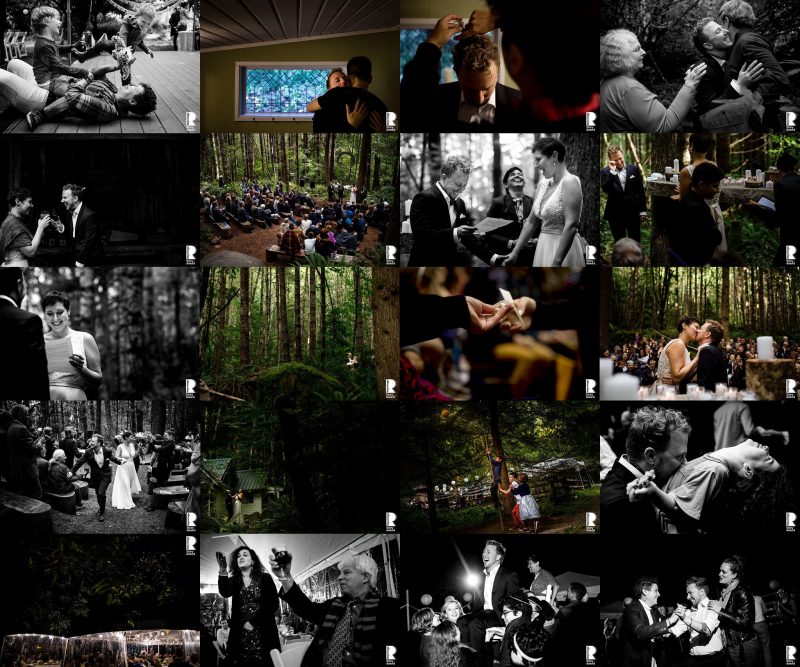
Alan:
It’s interesting.
Logan:
Yeah.
Alan:
By the way, just to say that I’m 40 like about six months, it’s still fine to photograph at 40, you know.
Logan:
Yeah, okay. That’s good.
Alan:
No, but it is really interesting. And I think about it, you know, quite often as well. And it’s just, yeah, well, I remember, you know, a few years ago thinking that you know, will couples still want to book me when I’m like, you know, mid-forties or something?
Logan:
Yeah.
Alan:
Will they want a younger photographers and things, but then people get married to all different kinds of ages as well. And maybe, you know, slightly older couples may want a slightly older photographer. And there’s hundreds of thousands of people getting married.
Logan:
Yeah, that’s true. I photographed a couple last year, I think. And they were both in their, I think they were both in their forties. And those weddings are there, they’re actually, they’re actually some of the best weddings that photograph sometimes the older couples, because they just have such a different perspective on life and the weddings and celebrations, they throw are wonderful. So, if anything, having that market to relate to when I’m older would be a plus for me even.
Alan:
Yeah, that’s true. Isn’t it?
Logan:
Yeah.
Alan:
What do you think you would do, you know, what would you do if you did step away from weddings? Do you have a you know, if you didn’t do photography at all, you know, what would you do if you weren’t a photographer?
Logan:
Yeah, that’s an interesting question. I’ve thought about that before because I went to school for interior design.
Alan:
Oh, yeah. Sorry.
Logan:
And I did that for like three years and then photography was always something, I wanted to do. So, I only did interior design for three years and then retired from that, I guess. But I think if I was to do something else, I’ve always been kind of very entrepreneurial and I think, owning some type of business would be something, some others have a business that wasn’t photography, would be something that I’d be interested in. I’ve always really been into restaurants and cooking. And I think maybe that would be if I was to pivot would be something, I’d be really interested in. I get a lot of my inspiration actually from like chefs and I watched the if you never seen the Chef’s Table on Netflix?
Alan:
I haven’t no.
Logan:
It’s a very inspiring kind of documentary show about, different chefs, some of the world’s best chefs and staff. And every time I watched that, I always get very inspired, to cook and be like, oh man, it’d be really cool to own a restaurant someday where you kind of experiment and be artistic. So, I think that might be what I pivot to.
Alan:
That’d be cool man. You should do it.
Logan
Yeah.
Alan:
I do. Do you cook much at home then?
Logan:
Yeah, whenever we get the chance. So, we always love experimenting with different dishes and things. Trying new foods, new recipes. We went to Thailand for our honeymoon and when we were there, we took a cooking class. So, we brought back all the recipes and every once in a while, play around with those, different spices and you know, recipes.
Alan:
That’s sounds good. I’ve never been to Thailand.
Logan:
Yeah.
Alan:
And never been to Thailand and I’m an awful cook. I can cook like Spaghetti Bolognese and beans on toast. I think that is about it actually, that is my repertoire.
Logan:
Yeah, mine, was never that big until I met my wife and then it’s kind of ever since when we were dating, it was kind of something that we always loved to do together was to cook meals together and she’s taught me a lot of stuff
Alan:
Oh, that’s cool. And does she, second shoots for you sometimes? Does she?
Logan:
Yeah, she does. She was kind of, as I was trying to take my career and become full time, she was kind of always someone there that I could bounce ideas off of and show blog posts to, and be like, hey, what do you think of these photos and stuff? And she always had really good opinions on stuff and could help me narrow down photos. And then after a while, we got her a camera and she started taking pictures and she came along to second shoot for, for fun a couple of times. And she’s gotten to the point where I bring her along to the second shoot, all the time. So, a lot of fun that we can, we can do that together.
Alan:
Oh yeah, that’s nice. Do you, never argue at a wedding or anything? No don’t fall out? Is it always like perfect, perfect unison?
Logan:
No, it’s never, it’s never perfect, but it’s definitely, something we work on, but it’s definitely something that I love to do and she’s so creative and good in her own right at that. It’s definitely a blessing to have in my business.
Alan:
Oh, that’s cool.
Logan:
Yeah.
Alan:
And hope when she listens, when she listens to this back now that’s brownie points as well, man. That’s brownie points.
Logan:
Yeah, exactly.
Alan:
She’s probably sitting there right in front of you now. Isn’t she?
Logan:
Yeah, she is in other room. I’m pretty sure she can hear everything, I’m saying. Yeah.
Alan:
Is there anything that kind of bugs you or annoys you about our industry at all?
Logan:
That’s a great question. There are some things but they’re things that usually I don’t have to interact with as much based on kind of the clients that I work with. Based on kind of the work that I share. Most of the people that come to me to have me photograph their weddings, they’re looking, they’re really looking for those photos that are more about the people and the connection and the stories, and it kind of really kind of fits right into what I do. So, I don’t know interact with a lot of things that I don’t like within our industry as much.
Alan:
That’s cool. I mean, and how do you think you, you get those clients that want, or you know, those moments and the storytelling, is it, I guess just down to everything that you show really?
Logan:
Yeah. I think, I mean, that’s what I’ve heard from other people is just kind of show the work, that you want to shoot for, and then you’ll get that. But it’s really interesting. I was listening to a conversation between two photographers yesterday and they were also saying that it’s good to do that, but then it’s also good to show some of the other stuff that you also photograph that might not be exactly what’s your favorite thing to do. Because every time you remove something and you don’t show that, then you’re automatically removing a potential client that could have hired you for something that you photograph, that you just aren’t necessarily showing in your work. So I’ve kind of been thinking about that too, of like showing some more stuff that isn’t my favorite thing to photograph, but I definitely will photograph during the day. So it’s kind of an, it’s an interesting, give and take.
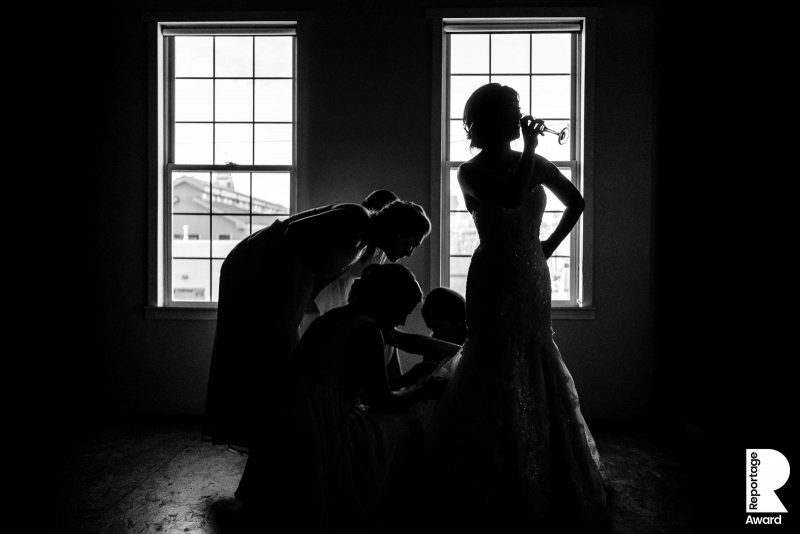
Alan:
Yeah, that’s true. Isn’t it? It’s interesting. Yeah. That’s the you know, that’s what I love again about what we do and it’s just, it’s same with shooting. You know, everybody can shoot a wedding totally differently and everybody can run their businesses totally differently. And I love that. Imagine how boring it would be if we all had to pass a kind of like wedding photography exam and we all had to shoot the same way.
Logan:
Oh, yeah.
Alan:
It’d be so boring, wouldn’t that be?
Logan:
Everybody had to edit their photos in the same way, shoot portraits in the same way. Yeah.
Alan:
Yeah.
Logan:
I think it’s really cool that there’s all these different styles. Actually, one of my goals is I want to be photographed by all my favorite photographers.
Alan:
Oh, that’s cool.
Logan:
The spectrum is wide for the people that I look up to and, really are inspired by and they’re all their work is so different that it’d be cool to get that experience of being photographed by all your favorites.
Alan:
Yeah, that’s a great idea actually.
Logan:
Yeah.
Alan:
That’s a great thing. Although I, oh man, I hate having my photograph taken in general. I really got to go over that. I really, yeah. Do not mind that. Are you okay?
Logan:
Yeah, no, I’m the same way, It’s not my favorite thing. But when we had our engagement photos and wedding photos taken, it was such a great experience from both sides. I learned so much from them just in the way that they shoot. That it’s kind of, I think it’s a really good experience to have yourself photographed because you learn so much just from like a business point of view.
Alan:
Yeh, that makes sense.
Logan:
Yeah, it’s good to be on the other side every once in a while, but it’s definitely not my favorite.
Alan:
Was it tricky finding your own wedding photographer? I mean, cause you, I presume you were a wedding photographer at the time when you were choosing your own wedding photographer.
Logan:
Yeah, yeah. It was only a two years ago that we were doing that.
Alan:
Oh, well.
Logan:
I guess three years ago we were doing the planning. And it was easy to, to gather all the people I wanted to photograph it, and then it was hard to narrow it down because there were so many people that I kind of really liked their work.
Alan:
Oh, yeah.
Logan:
But I’m really, really happy with the person we hired and the photos that she took, Caroline Roberts, out of Austin, Texas, and Colorado who’s shot our wedding and she did a phenomenal job.
Alan:
Oh, that’s cool, great.
Logan:
Yeah.
Alan:
Good stuff. And I hope she’s listening as well. Oh man, this is honestly, I just looked at a time. It’s like it’s absolutely though. It’s flown. So I’ve got just, do I have time for one more Logan? Sorry.
Logan:
Yeah.
Alan:
It just flies.
Logan:
It was fun.
Alan:
Yeah, I really enjoyed it. It feels like it’s the first time I’ve ever spoke to you, but it feels like I’ve known you. It’s awesome. What would, okay. Let’s end on this one because that’s always interesting. I think what would be your top tips would be to help someone get better at the documentary side of what we do obviously, with Reportage, that is our focus. So, and you know, you do so well at nailing those moments. So yeah, the documentary side in general, what would be your kind of top tips?
Logan:
I think my, the biggest thing that I’d recommend is for people to just keep shooting and just keep developing those skills. And the best way to do that is photograph the people closest to you, photograph your friends, photograph your family. If you have kids, photograph the kids. I’m doing that, artist series where I’m photographing artists in their workspaces doing what they do. And just by doing that, I’m every time I take a picture, every time I do it, I’m getting better at what I do. So, I would just do that, develop some type of small passion project or something of photographing people. It’d be a great way nowadays to, to kind of volunteer for an organization where you feel like you could go in and be kind of like an on the wall on the like, documentary for this organization. So that’s kind of what I’d recommend. Just kind of find a passion project and just, you know, make it fun and make it, personal and photograph it and you’ll continue to develop your skills and get better over time.
Alan:
I think that’s great advice. I really do, yeah. It’s something that I need to do, honestly. I really do. Yeah, at some point I will really do.
Logan:
Yeah.
Alan:
Oh, man, oh, man, thank you so much. I really enjoyed talking to you and thank you for your honesty and openness. Openness, probably not a word, but yeah, honestly, I really enjoyed that, man. I think, hopefully, you know, people listening, I think they’ll take loads from that. Thank you so much.
Logan:
Awesome. Yeah, thank you for wanting to talk to me. I really, really love This is Reportage and it’s so much fun every time to submit my stuff. And I love that you started the Family one, too, I’m really excited to start submitting to that.
Alan:
Oh, that’s cool. Awesome. Thanks for being part of that as well. And yeah, as I say, anyone listening do head to the site, thisisreportage.com and there’ll be, I’ll include loads of examples of Logan’s work and that specific Reportage Award that he spoke about earlier as well. And yeah, man, thanks so much for your time and hopefully I’ll get to get, hopefully, maybe meet you one day. That would be awesome.
Logan:
Yeah, maybe we’ll meet in Vegas even.
Alan:
Oh yeah, yeah. we’ll do it you come over for that one night, I’ll do it as well. A bit longer flight for me. How long is it the flight for you would it be to Vegas?
Logan:
I think from here it might be like an hour or two. It’s pretty close.
Alan:
That’s so good. It’s 11 hours for me, 11.
Logan:
Oh, wow. Yeah
Alan:
Yeah. Let’s do it though.
Logan:
You can’t do it one-day thing.
Alan:
Yeah, no, that would be awesome. Thanks, so much for that and yeah and you stay safe.
Logan:
Yeah, you too. You have a good one.
Alan:
Bye man, bye-bye.
Logan:
Alright, Bye.
***********************************************************
We hope you enjoyed our Logan Westom interview!
View lots more of his work on his website, or here on his This is Reportage profile (or his family work can also be seen on his This is Reportage: Family profile).
Interested in joining us? See all the benefits and apply for membership over here.
